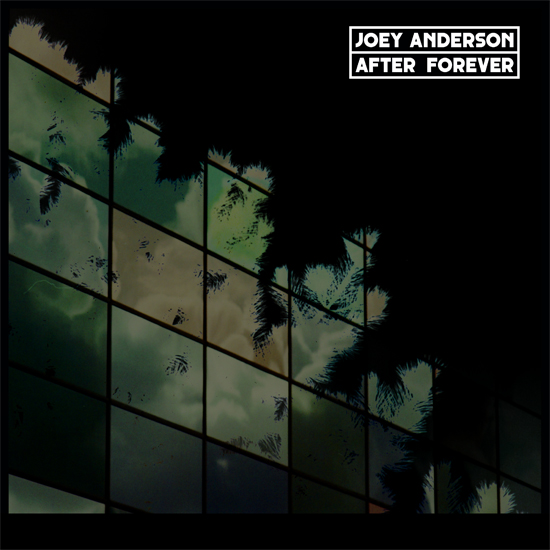In recent years, some of the best house music has crossed into disquieting waters, into a disorienting mental zone where the coordinates on the heat-smudged map don’t tally with what is coming up ahead. Unpredictable and hypnotic, of all the loosely affiliated East Coast producers making music – Levon Vincent, Jus Ed, Fred P, Anthony Parasole and DJ Spider, to name a few – it’s New Jersey native Joey Anderson who has been responsible for the strangest tracks. Often lacking discernable impact points, and very often lacking snare hits too (no small matter in house) the best of Anderson’s music possesses hallucinatory power and dark romance in equal measure.
Brought to wider underground consciousness through the inclusion of the sprawling ‘Earth Calls’, played in its near entirety, as the first track on Levon Vincent’s 2012 Fabric 63 mix, Anderson has since recorded a plethora of 12"s for a variety of small labels. The very best of his work, including last year’s bewitching Avenue 66 release ‘Above The Cherry Moon’, throws down a challenge to DJs and dancers alike, with queasily shifting synths maneuvering like mysterious glowing orbs, anchored to loose 4/4 rhythms, devoid of the usual percussive tics. Now, however, Anderson has escaped the spatial limitations of the 12" format with After Forever, his first full album, a record that pushes his futurist mystic vibe to kaleidoscopic sonic heights.
The brooding ‘Space Between Curtains’ opens proceedings with creepy synth lines offset against expertly deployed echo. It sounds like a piano playing itself in a long abandoned theatre, while the organist – who remained behind in the pigeon-infested attic – retaliates with a symphony of the mind that only he can hear. ‘It’s A Choice’ introduces breaks, dry-cured snares (a rarity for Anderson) and woodblocks, while the kick and sub tumble around the mix alongside unpredictable bass stabs. The vocal, repeating the title again and again and again, calls to mind the disembodied tick-tock of footwork vocal sorcery. The voice is used as rhythmic kink, repeated ad infinitum until the mind hones in on its particular intonation, and it blurs to become something approaching a weird subsidiary drum track. Thrillingly, though, it is the voice’s barely audible surroundings that gives this track its body – swathes of white noise and submerged melody, off key and untamed. ‘Space Colors Ideas’, meanwhile, offers propulsive sound without any beats at all. An incessant synth vamps, while Anderson adds his alchemical flourishes of skewed melody and grandeur.
Yet although a sense of the epic is often writ large over his music, one of Anderson’s most endearing traits is that he seldom allows tracks to become overbearing. Take ‘Archer’s Cermony’ or ‘Sky’s Blessings’, both seven-odd minutes of dreamlike brilliance that subtly introduce new elements at weird junctures throughout. Both are truly ethereal, and both are tracks that a lesser producer could easily have spun out for fifteen self-indulgent minutes and lost the spark. For a producer working with such an idiosyncratic palette, Anderson shows remarkable restraint.
Occasionally it’s possible to pick out his influences. The concave bounce of ‘Maidens Response’ suggests Robert Hood gone acidic. Unusually taut kicks propel the track along, while cranium-stretching effects are expertly placed along the line. Psychedelic music indeed, but not in the meandering, epic sense; psychedelic rather in the fact that Anderson seems intent on toying with the brain, creating a stew of delirium, the heat haze of a New Jersey summer viewed through the looking glass of his music.
But while this is in every sense heady music, it is also floor focused. Anderson himself is an accomplished semi-professional house dancer, and in the same way that Chicago footwork tracks are built for challenge, you get the distinct impression that Anderson brings his own physical experience and muscle memory to bear when building these tracks. This is music that progresses at unexpected junctures: melodies swim in off-bar; hats tick away just slightly off-beat; tracks end abruptly, shocking you out of reverie. This is a record that seeps into your DNA, and while his sound flips the traditional house signifiers of unity, sweat and immediacy into rather more introspective waters, here Joey Anderson has created some of the most fulfilling music in the genre’s recent history – and he sounds like absolutely nobody else.


